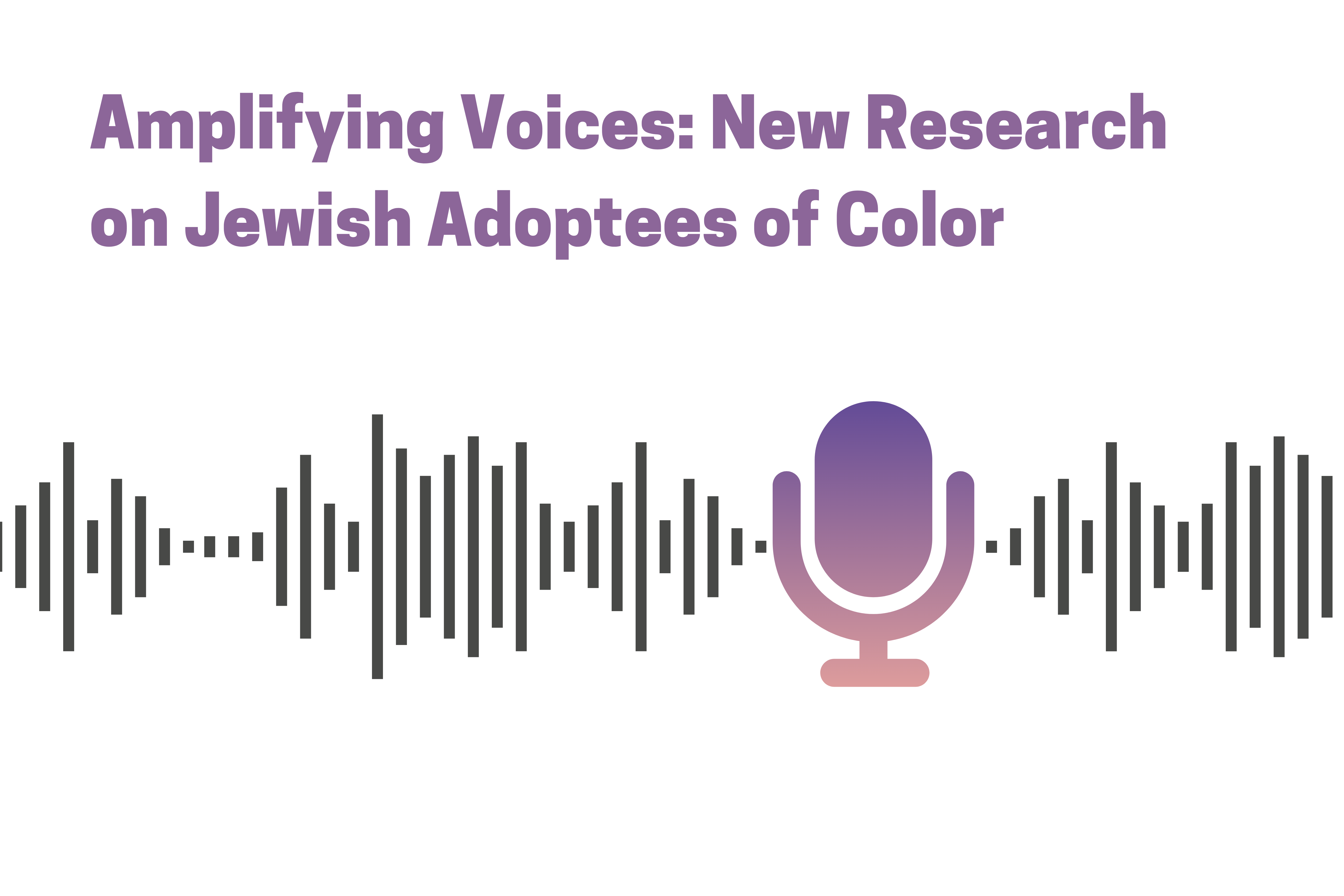
Dr. David McCarty-Caplan is a researcher, educator, and writer with many years of experience applying culturally responsive analysis to examine complex social issues. We spoke to him about his current research project, Shades of Belonging, a study of adoptees of color raised in Jewish families. As a Colombian person adopted into a white Jewish community, Dr. McCarty-Caplan’s interest in this topic has been forming since his youth: “the intersections of adoption, race, and religion have always been very salient in my mind as I’ve developed my own sense of where I belong, who I am, who my people are.” The Jews of Color Initiative is proud to support Dr. McCarty-Caplan’s work as he illuminates JoC adoptee experiences, across racial and ethnic identities, that are often overlooked.
Dr. McCarty-Caplan gained his PhD in social work from the University of Chicago-Illinois, which is where his pursuit of social justice became entwined with policy research and program development. “I’ve focused all of my work on trying to find ways to give greater voice or affirmation to underserved populations,” he said. His work has spanned research on incarcerated populations, LGBTQIA+ communities and those with marginalized gender identities. Dr. McCarty-Caplan sees his work with Jewish adoptees of color as an extension of this focus.
While adoption is one pathway into Jewish life, Dr. McCarty-Caplan has anecdotal evidence that adoptee experiences aren’t always incorporated into discussions of representation in the Jewish community. “I think there’s something really beautiful about giving voice to adoptees of color in Judaism with the intent of using their experiences to build more inclusive Jewish communities,” said Dr. McCarty-Caplan.
Part of the reason JoC adoptees’ voices have not been uplifted, Dr. McCarty-Caplan posits, may be due to stigma around challenging mainstream adoption narratives, noting that adoption experiences—Jewish or not—often have great trauma that can seed a questioning of one’s sense of self and belonging.
Dr. McCarty-Caplan has noticed that there is a tendency to see adoptees as beneficiaries of kindness—as charity cases—who should be grateful to their adoptive families. He hypothesizes that the Jewish community is not immune to this dynamic. Statistically, Jewish families tend to adopt twice as much as the general population, with a disproportionate rate of transracial adoption; 76% of adoptions into Jewish homes are transracial, as compared to 40% nationwide. Considering Judaism’s emphasis on mitzvot and tikkun olam, Dr. McCarty-Caplan believes adoption is often seen as a benevolent force, which may create complex dynamics for adoptees themselves.
Dr. McCarty-Caplan plans to use various methods in his research, including a brief quantitative survey as well as a longer, more in-depth qualitative interview with a randomly selected group of participants. This will involve gathering basic demographic information from respondents, including age, race, and the racial makeup of their adoptive family, as well as delving into their experiences over time in Jewish communal spaces. Participants will be asked to reflect on several variables within their experiences: whether they felt welcomed, how engaged they felt in Jewish communities, and their overall satisfaction with those experiences. This data will also be contrasted with how they currently engage with Jewish communities. This data can speak to both the shifting dynamics within Jewish communal spaces over the years, as well as the lived experiences of adoptees, and how those may have changed over time.
Not only will this research shine light on the experiences of adoptees of color, it will allow Jewish adoptees of color to connect with one another through recognition of their unique shared experiences. Once the data has been gathered and analyzed, the findings will be shared with the public in two separate events in Spring 2024, with a goal to publish in academic outlets as well. Public events and documented research on the experiences of Jewish adoptees of Color are not only significant additions to the field of knowledge on Jews of Color, but represent an effort to connect JoC adoptees with one another and make their experiences visible in the broader community.
Through the early stages of this research study, Dr. McCarty-Caplan has discovered a community of individuals with similar experiences to his, as well as a sense of optimism about the future of Jewish inclusivity. While his forthcoming research has yet to reveal scientific data on JoC adoptee experiences, Dr. McCarty-Caplan is brimming with ideas for crafting more inclusive Jewish communities, such as youth programming or mentorship from JoC adoptee adults. “I believe the findings from this research could be practically applied within Jewish communal organizations or programs that intend to support JoC communities through providing a more nuanced understanding of the experiences within an often marginalized Jewish community,” said Dr. McCarty-Caplan. He also noted that no current programming exists specifically for Jewish adoptees of color, which is a gap that he hopes to fill. “There is a need for evidence-informed programming to help support belonging and personal and professional development for JoC adoptees,” he added.
“Whether [other adoptees of color] are of my race of origin or not, they’re my brothers and sisters. We have that shared trauma, and having a beautiful community for my folk can happen. We just have to put in the work. I want to be seen fully as Latino, fully as adopted, fully as Jewish all at once. And it’s been very rare that I can find that, but since I found it, that’s exactly what I want to create for other people.”
Dr. McCarty-Caplan is gathering participants through January 15, 2024. Sign up to participate at bit.ly/ShadesOfBelonging.


